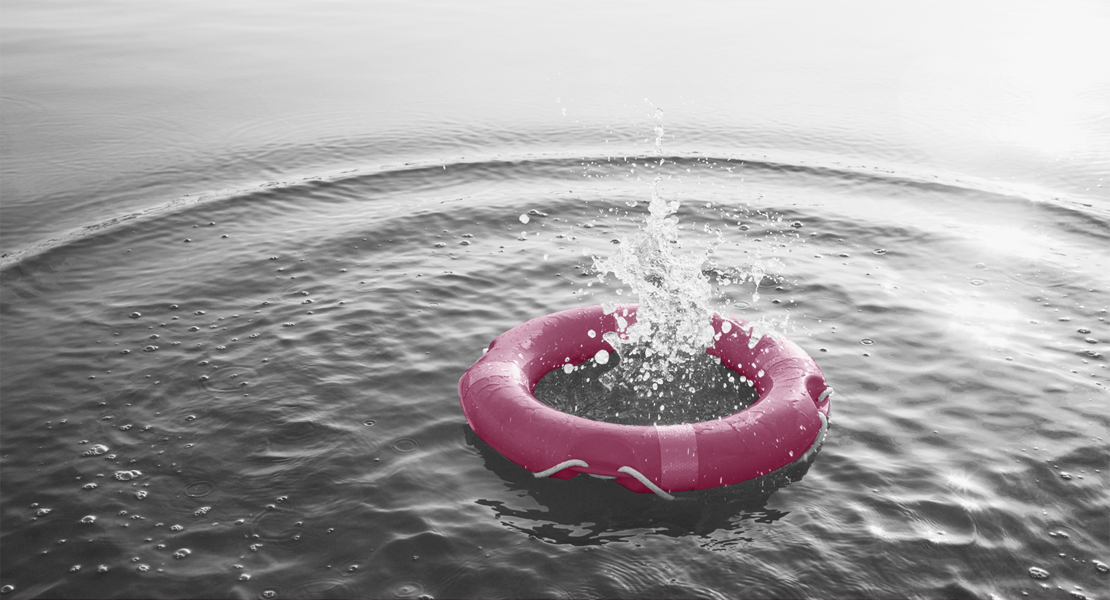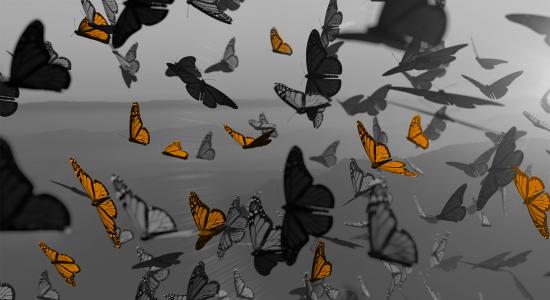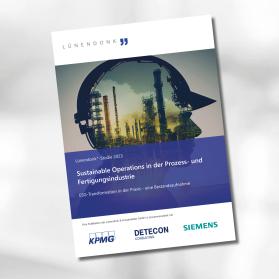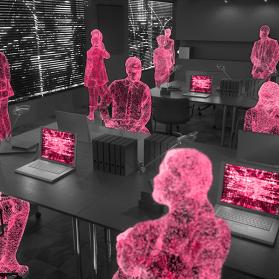The ongoing digitization in Germany does not stop at the water industry. Analogous to developments in industry, this is referred to as Water Industry 4.0. From the automation of business processes and digital products to the networking of entire plants, digitization affects all stages of the value chain. On the one hand, it can reduce valuable resources such as energy and water losses, and on the other, it can increase supply and disposal security. The first lighthouse projects for the digitization of the water industry, such as the widespread use of IoT-enabled hardware, have already been implemented. However, new studies also show that there is still potential for improvement in many areas of the industry that can be realized for a complete transformation toward Water Management 4.0.
Use cases for digitization measures in the water industry
The water industry has already implemented a wide range of lighthouse projects in the area of digitization that can be used as best practices for the industry. Moreover, in addition to industry-specific solution approaches, use cases can also be transferred from the energy industry. Analogous to the energy industry, there are already several pilot projects in the water industry in which connected groundwater meters transmit data via radio to the application in the data center or even in the cloud, thus eliminating the need for manual measurements. The measurable benefit lies both in process cost reduction and in the demonstrable improvement in data quality due to simultaneously available measurement results with higher accuracy and earlier availability. With the help of a suitable mobile radio connection and appropriate hardware, this concept can also be transferred to other utilities and areas.
In addition to the use of hardware to promote digitization, there is also the possibility of using application platforms to support operational functions and possible realignment of processes, such as for workforce management. A relevant use case for such a platform is the processing of citizen requests in water maintenance. Here, information and orders are transmitted for the processing of these requests. Inquiries from citizens, which are usually still made by telephone or in writing, are recorded by employees with all the data and information relevant to the assignment, scheduled as a service order via rough and fine scheduling, and assigned to the responsible technical employee. This information, which comprises the service order, can be accessed via app at any time and can optimally support the necessary activities. In addition, the disposition of the necessary materials can also take place and be provided in the "background" via the platform. As a rule, navigation functions are also offered, which can still help to optimize travel time. Once the activities have been completed, the job can be finished with all relevant information as well as necessary visual material/photos and the data transferred to the platform. For such applications, however, it is essential to train your own employees to use the new digital tools. Of course, such platforms are also conceivable for other use cases, such as the (inter)national data provision of water management measurement data, as long as uniform data formats and interfaces are established.
In addition to optimizing internal workflows and processes, digitization creates the opportunity to build up product diversification and expand the range of services. On the one hand, digital products can be used in the B2C sector, such as digital water meters that, in addition to water consumption, use intelligent sensor technology to warn of pipe bursts and automatically prevent them. On the other hand, services enable, for example, the provision of a real-time consumption and billing overview of the customer's (waste) water volume on a website/smartphone app set up for this purpose.
It can be seen that digitization offers a broad field of possible applications in the water industry, but its implementation presents utilities with a number of challenges and requires a clear strategic direction.
Challenges on the way to Water Management 4.0
The "1st HRW Digitization Index for the Water Industry (2021)" published by Ruhr West University of Applied Sciences at the beginning of 2021 was one of the first studies to highlight the progress of digitization with a focus on the water industry. The aim was to obtain a holistic overview of the current digitization situation in all stages of the value chain in the water industry. [HRW, 2021] As a result of the study, it can be stated that the water industry has already exhausted a considerable part of its possibilities, but there is still potential for improvement in many areas.
From Detecon's point of view, these exist in the following areas:
- Missing or incomplete digitization strategies at small, medium-sized, and in some cases large utilities which mainly offer water supply and wastewater disposal services
- Outdated or insufficient risk analyses in IT and OT security with subsequent consistent further development of IT and OT systems
- Insufficient data and information quality of data generated by installed sensor technology for data-based decision making, patchy data transmission
- Expandable offering in the area of digital products and services
- Expandable employee qualification with regard to current and future necessary requirements for digitalization with water management 4.0
However, digitization in companies is limited by political framework conditions. The "Digitalization in the Water Industry 4.0" recently published by the Bundesverband der Energie- und Wasserwirtschaft e.V. (bdew for short) shows the current problems in the water industry and addresses future demands towards politics to counter them. In addition to problems such as emerging climate changes, non-compliance with the EU Nitrate Directive and the implementation of the precautionary and polluter-pays principles, the strategy also criticizes the insufficient development opportunities in the field of digitalization. Specifically, for further digitalization, an adjustment of the legal and financial framework in the use of radio metering, as well as equal data provision obligations and data security for private and public companies are demanded. [bdew, 2021]
Ultimately, further steps toward digitization are needed in perspective from politics and the utility industry. In addition to the necessary political framework conditions, utilities should promote the planning and implementation of transformation measures for further digitization. At the same time, however, this must not serve as an end in itself. In other words, not everything should be digitized simply because it corresponds to the current "zeitgeist", but only in sensible use cases with corresponding long-term benefits. This will only be possible if all relevant subdivisions of a company digitize to the same extent and face up to the coming challenges of Water Management 4.0.
Marcus FelsmannDie Wasserwirtschaft hat bereits ein breites Spektrum an Digitalisierungsprojekten umgesetzt, die als Best Practices genutzt werden können.
Zusätzlich zu der Optimierung von internen Abläufen und Prozessen schafft die Digitalisierung die Möglichkeit, eine Produktdiversifikation und Erweiterung des Dienstleistungsangebots aufzubauen. Einerseits können digitale Produkte im B2C-Bereich, wie digitale Wasserzähler, die neben dem Wasserverbrauch zusätzlich durch intelligente Sensorik vor Rohrbrüchen warnen und diese automatisch verhindern, eingesetzt werden. Andererseits ermöglichen Dienstleistungen beispielsweise die Bereitstellung einer echtzeitfähigen Verbrauchs- und Rechnungsübersicht über das (Ab‑)Wasservolumen des Kunden auf einer dafür eingerichteten Website/Smartphone-App.
Es zeigt sich, dass die Digitalisierung ein breites Feld an Anwendungsmöglichkeiten in der Wasserwirtschaft bietet, deren Umsetzung die Versorgungsunternehmen jedoch vor eine Reihe von Herausforderungen stellt und einer klaren strategischen Linie bedarf.
Herausforderungen auf dem Weg zur Wasserwirtschaft 4.0
Der Anfang 2021 von der Hochschule Ruhr West veröffentlichte „1. HRW-Digitalisierungsindex für die Wasserwirtschaft (2021)“ hat als einer der ersten Studien den Fortschritt der Digitalisierung mit Fokus auf die Wasserwirtschaft beleuchtet. Ziel war es, einen gesamtheitlichen Überblick über die aktuelle Digitalisierungssituation in allen Wertschöpfungsstufen der Wasserwirtschaft zu erlangen. [HRW, 2021] Als Ergebnis der Studie lässt sich festhalten, dass die Wasserwirtschaft zwar bereits einen beachtlichen Teil ihrer Möglichkeiten ausgeschöpft hat, jedoch in vielen Bereichen noch Verbesserungspotenziale bestehen.
Aus Sicht von Detecon bestehen diese in folgenden Bereichen:
- Fehlende oder unvollständige Digitalisierungsstrategien bei kleinen, mittelständischen und teilweise großen Versorgern, die hauptsächlich Wasserver- und Abwasserentsorgung anbieten
- Veraltete oder unzureichende Risikoanalysen in der IT-und OT-Sicherheit mit anschließender konsistenter Weiterentwicklung der IT-und OT-Systeme
- Zu geringe Daten- und Informationsqualität der von verbauter Sensorik generierten Daten für eine datenbasierte Entscheidungsfindung, lückenhafte Datenübertragung
- Ausbaufähiges Angebot im Bereich digitaler Produkte und Dienstleistungen
- Ausbaufähige Mitarbeiterqualifizierung hinsichtlich aktueller und zukünftig notwendiger Anforderungen an die Digitalisierung mit der Wasserwirtschaft 4.0
Die Digitalisierung in den Unternehmen wird jedoch durch politische Rahmenbedingungen begrenzt. Die kürzlich vom Bundesverband der Energie- und Wasserwirtschaft e.V. (kurz bdew) veröffentlichte „Wasserstrategie“ zeigt die aktuellen Problemstellungen in der Wasserwirtschaft und adressiert zukünftige Forderungen gegenüber der Politik, um diesen zu begegnen. Neben Problemen, wie beispielsweise den aufkommenden Klimaveränderungen, der Nichteinhaltung der EU-Nitratrichtlinie und der Umsetzung des Vorsorge- und Verursacherprinzips werden auch die unzureichenden Entwicklungsmöglichkeiten im Bereich der Digitalisierung kritisiert. Konkret wird für die weitere Digitalisierung eine Anpassung des rechtlichen und finanziellen Rahmens beim Einsatz von Funkmesszählern, sowie gleiche Datenbereitstellungspflichten und Datensicherheit für private und öffentliche Unternehmen gefordert. [bdew, 2021]
Letztendlich bedarf es perspektivisch weiterer Schritte in Richtung Digitalisierung von Politik und Versorgungswirtschaft. Neben notwendigen politischen Rahmenbedingungen sollten die Versorger die Planung und Umsetzung von Transformationsmaßnahmen zur weiteren Digitalisierung fördern. Zeitgleich darf diese jedoch nicht dem Selbstzweck dienen. Es soll also nicht einfach alles digitalisiert werden, weil es dem aktuellen Zeitgeist entspricht, sondern nur bei sinnvollen Anwendungsfällen mit entsprechendem langfristigem Nutzen. Dies wird nur dann möglich sein, wenn alle relevanten Teilbereiche eines Unternehmens in gleichem Maße digitalisieren und sich den kommenden Herausforderungen der Wasserwirtschaft 4.0 stellen.








